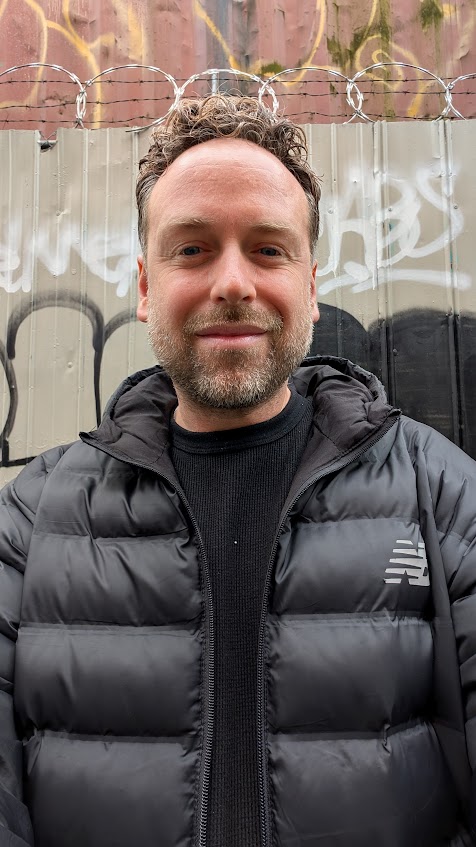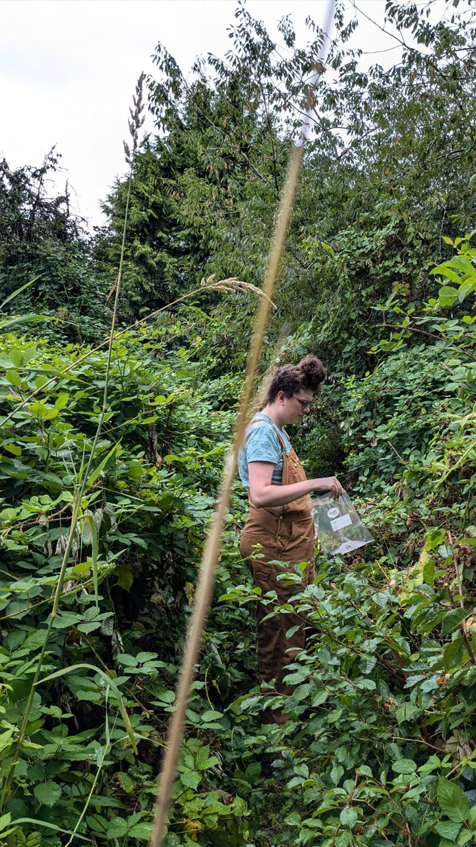A feminist technoscience and affect studies methods lab
hello@doingsts.com
Doing STS is a Vancouver-based
nonprofit (S0077711)
A feminist technoscience and affect studies methods lab
ORDINARY PRACTICE
Doing STS stages accessible and collaborative opportunities for play and learning with science and technology studies (STS) and affect via ordinary and DIY practice. We host free public workshops, book clubs, and research jams. Through writing, walking, mapping, zinemaking, textile and papercrafting, fermenting, composting, and other modes of making, we “craft with matter”1 to materialize alternative futures. We actively develop methods of care and anticolonial science and tech literacies with an emphasis on how emergent global complexities are made and experienced in small, local practices that include messiness, hunches, and mistakes.2BECOME A MEMBER
While anyone can attend our events, we are funded by our members. Support us with a small one-time or reccurring membership fee. Members are welcome to join in on planning, give a workshop or public lecture, and can vote on future intiatives at our annual meeting. Fees are not considered a charitable donation and we are unable to issue tax reciepts.Join Now
hello@doingsts.com
Doing STS is a Vancouver-based
nonprofit (S0077711)
- Dimitris Papadopoulos, "Alter-ontologies: Towards a Constituent Politics in Technoscience," Social Studies of Science 41, no. 2 (2010): 177–201.
- John Law, "And if the Global Were Small and Noncoherent? Method, Complexity, and the Baroque," Environment and Planning D: Society and Space 22, no. 1 (2004): 13–26.
Team
Doing STS offers fellowships for graduate students, early-career scholars, artists, and activists working alongside STS and affect. Small member-funded seed grants support fellows to design and lead a public workshop or lecture.
Mathew Arthur
Executive DirectorSophia Jaworski
Director of ResearchReuben Jentink
Director of EducationCeall Quinn
Director of Political EcologySarah Law 婉雯
Director of EngagementMorgan Legal
2025 FellowSybil Willoughby
2025 FellowAdvisory Board
Lindsey A. Freeman
Simon Fraser UniversityVivienne Bozalek
University of the Western CapeJonas Fritsch
IT University of CopenhagenKelly Fritsch
Carleton UniversityDonna J. Haraway
Emeritus, UC Santa CruzOmar Kasmani
Freie Universität BerlinLinda Knight
RMIT UniversityDana Luciano
Rutgers UniversityErin Manning
Concordia UniversityAndrew Murphie
IndependentNatasha Myers
York UniversityColeman Nye
Simon Fraser UniversityDimitris Papadopoulos
University of NottinghamJoseph C. Russo
Wesleyan UniversityDonovan O. Schaefer
University of PennsylvaniaGregory J. Seigworth
Millersville UniversityChad Shomura
University of Colorado DenverAlexis Shotwell
Carleton UniversityNathan Snaza
University of RichmondStephanie Springgay
McMaster UniversityKathleen C. Stewart
Emeritus, UT AustinKatie Strom
CSU, East BayJuanita Sundberg
University of British ColumbiaSarah E. Truman
University of MelbourneAmanda D. Watson
Simon Fraser UniversityJie Yang
Simon Fraser UniversityOur Ethics
Doing STS centers and develops methods of care. This means caring for the tools, materials, animals, plants, and microbes that show up in the more-than-human contact zones of our shared practice. It also means caring for each other: attending to the multiple histories, concepts, technologies, and bodies that inflect our shared work.
We go slow and practice caution about what worlds our research helps to make or unmake. STS and affect studies work often require access to paywalled articles or travel to conferences. Care also includes sharing money, food, transportation, gear, and pirated academic resources like meeting rooms or university library passwords.
We go slow and practice caution about what worlds our research helps to make or unmake. STS and affect studies work often require access to paywalled articles or travel to conferences. Care also includes sharing money, food, transportation, gear, and pirated academic resources like meeting rooms or university library passwords.
We work to unsettle the taken-for-granteds of science and tech knowledge production that leave little space for neurodiversity, chronic illness, poverty, Blackness, Indigeneity, and gender and sexual difference. We turn instead to atmospheres of living and pay attention to vibes and gut feelings. Our care methods highlight the performativity of practice: how what we do tends some relationships and neglects others. In this way, care signals the inseparability of knowledge work and everyday life amidst the economic, political, and ecological pressures that inform or impossibilize ways of living and studying together.
Our Book
Everything is a Lab is a scrapbook and an experiment. It collects the artifacts, written and otherwise, of a year’s worth of public workshops that put science and technology studies and affect studies together. Through zinemaking, collaging, foraging, fermenting, perfuming, and walking together, we do ordinary science from the kitchen table and work to materialize alternative futures. Putting STS and affect together bolsters literacies for how the world is being made and how we might make it differently.
CONTRIBUTORS
Mathew Arthur, Debarah Bulford, Lindsey A. Freeman, Reuben Jentink, Sarah Law 婉雯, Morgaine Lee, Erin Manning, Rowan Melling, Coleman Nye, Hayden Ostrom, Rebecca Peng, Ceall Quinn, Donovan O. Schaefer, Chad Shomura, Becca Soft, Kathleen Stewart, Amanda D. Watson
Mathew Arthur, Debarah Bulford, Lindsey A. Freeman, Reuben Jentink, Sarah Law 婉雯, Morgaine Lee, Erin Manning, Rowan Melling, Coleman Nye, Hayden Ostrom, Rebecca Peng, Ceall Quinn, Donovan O. Schaefer, Chad Shomura, Becca Soft, Kathleen Stewart, Amanda D. Watson
188 pages, color
9798865488255
DOI 10.22387/EIAL
Free online
$34.00

PRAISE FOR EVERYTHING IS A LAB
The book works as exercises in writing and being together. It registers with care the circulation of practices, techniques, and affects that define the many labs through which we articulate what a community of sensing and thinking is. The book participates in the past years of research addressing labs beyond the strictly scientific, while also thus expanding the very insights into what are the situated spaces and shared affects of knowing and theorizing.
—Jussi Parikka, co-author of The Lab Book
Taking seriously the proposition that science is ordinary, this dazzling book encourages us to consider how we do and might make worlds with care, courage and imagination. It pushes the boundaries of theory and practice, collecting together experimental writing and write-ups with beautiful images from collaborative workshops, pulling us into the worlds of bees, inviting us to turn ourselves into sensors, providing us with guides to compose new scents and more-than-human substances—and lots more besides. It is a treasure trove of a book, designed to delight and inspire researchers across STS and affect studies.
—Rebecca Coleman, author of Glitterworlds


By-Places
Walking AdjacencyThe urban landscape is teeming with undergrowth, underworlds, underplaces. These are sites of refuge, desire paths, fire pits, guerrilla gardens, and encampments: by-places. Today, Vancouver is undergoing parallel but entwined projects of mass redevelopment that promise a safer, more beautiful, and "affordable" city. Such growth overlooks what lies underneath: ad-hoc zones of impersonal care. What new modes of attunement can we experiment with to feel incipient futures—those silenced by masterplans? We invite you to get lost, feel by-places at work, and walk adjacency together. Guided by figures from our ongoing project, you are invited to make traces (drawings, photos, audio, and fragmentary writings) to grow an an/archive of by-places.
1 to 4pm, November 22, 2025
Fraser River Trail Park (Meet at Wick's Café, 1300 West 73rd)
Led by Morgan Legal and Sybil Willoughby
Free Sign Up
Nov
Insurgent Residues
A Critical STS Encyclopedia of ExtractivismInsurgent Residues is a collaborative critical digital humanities project that aims to build a living STS encyclopedia of extractivism in “British Columbia.” Drawing inspiration from Feral Atlas and feminist technoscience studies, we will gather short, multimodal pieces that each focus on chemicals, infrastructures, scientific practices, or breakdown products in extractive systems.
Entries might follow materialities and more-than-human lifeforms such as xanthates in mineral processing, the “poise” of an aquifer, dust, fracking fluids, forestry pesticides, or acidification as a breakdown process, tracing extraction across its full arc: from origin to supply chain to commodity to residue and waste.
Every other Wednesday, 6-8pm PST
Starting November 12, 2025
Near Commercial-Broadway Station
Join Us
Nov
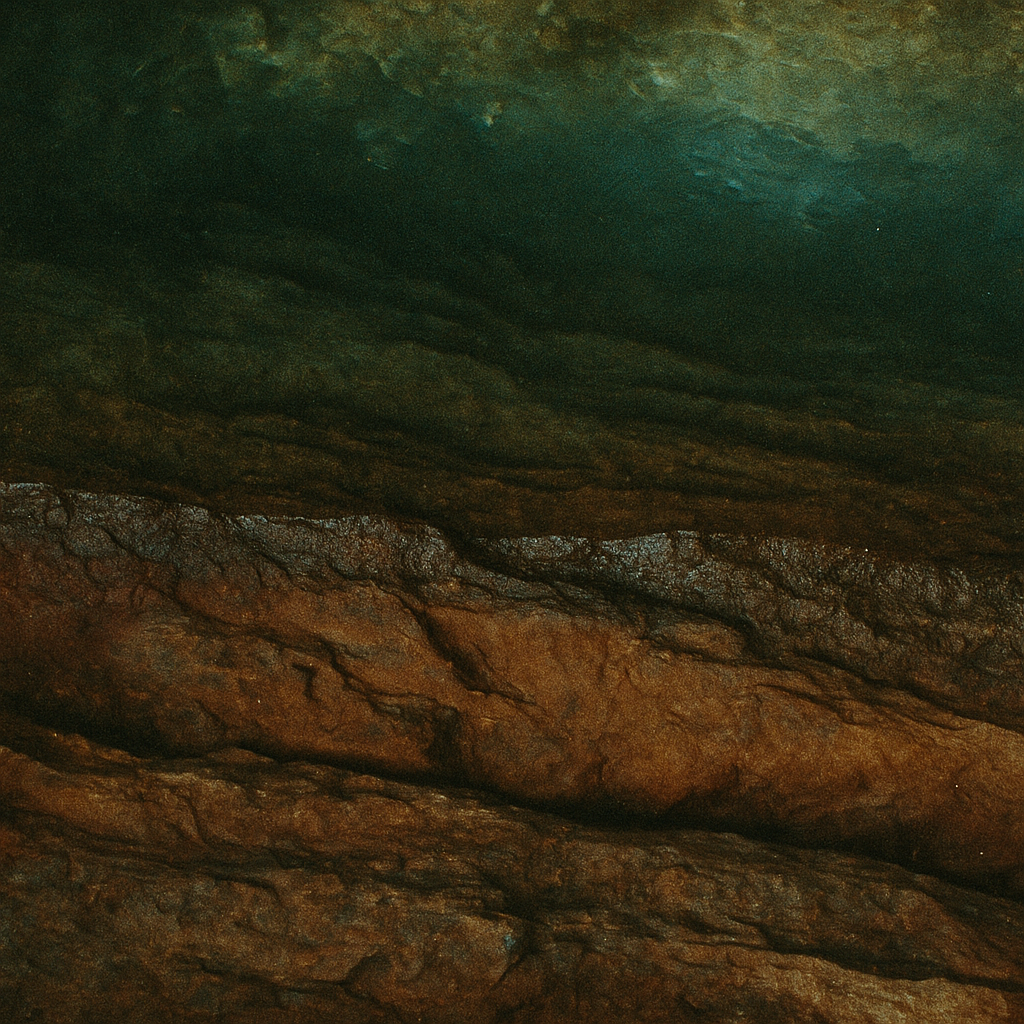


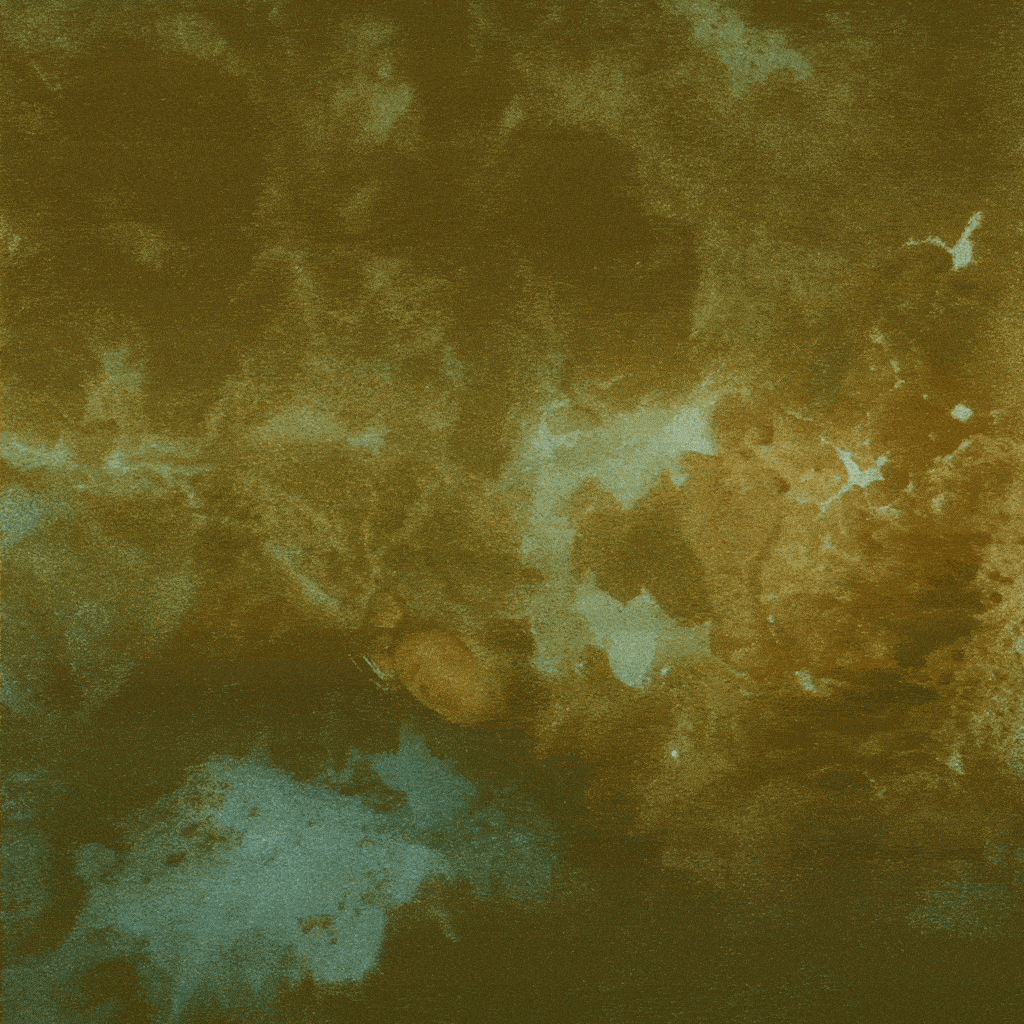
The project will unfold through two linked components:
Led by Sophia Jaworski and Mathew Arthur
Encyclopedic Archive
A digital platform and accompanying publication that critically discusses and resynthesizes scattered and technical chemical and industrial data through an STS lens, combining archival fragments, community knowledge, and multimodal annotations to build extractivism literacyMapping Extraction
Collective mapping of extractive headquarters and corporate nodes connected to global supply chains and “permission to pollute” regimes.
Led by Sophia Jaworski and Mathew Arthur


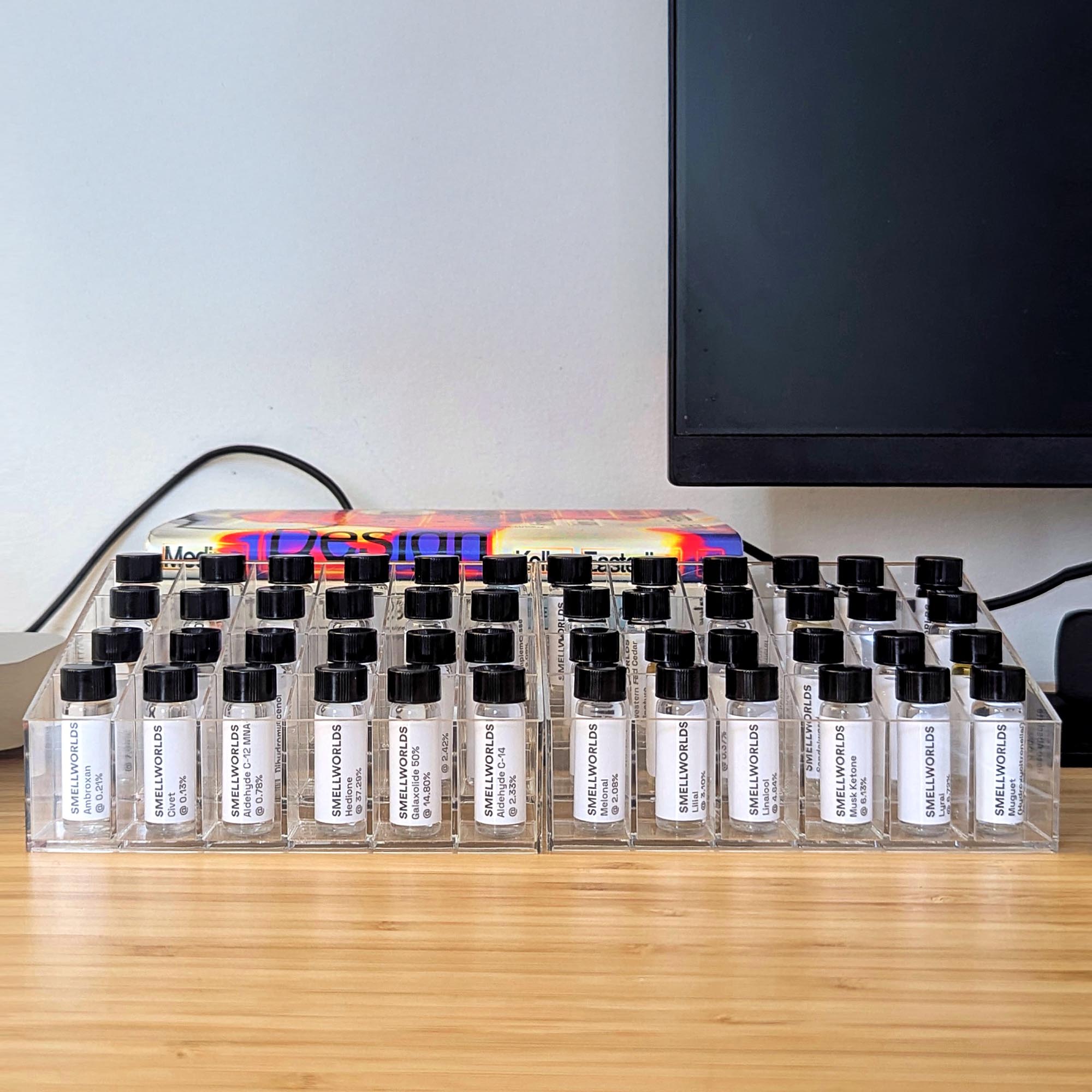

Smellworlds Workshop
Mathew ArthurSmellworlds began as an amateur perfuming practice at the kitchen table during the Covid-19 pandemic and quickly turned into a how-to zine, an online archive of books about smell, and a series of academic workshops and talks. On August 19, 2025, we held a critical perfumery workshop for staff from Curiko, a local disability nonprofit. We learned about olfactory families, how STS and affect can help us to think critically about toxicity and desire, and made our own scents from a kit of aromachemicals, resins, and natural oils.
Read the handout:
Workshop (PDF)
Aug
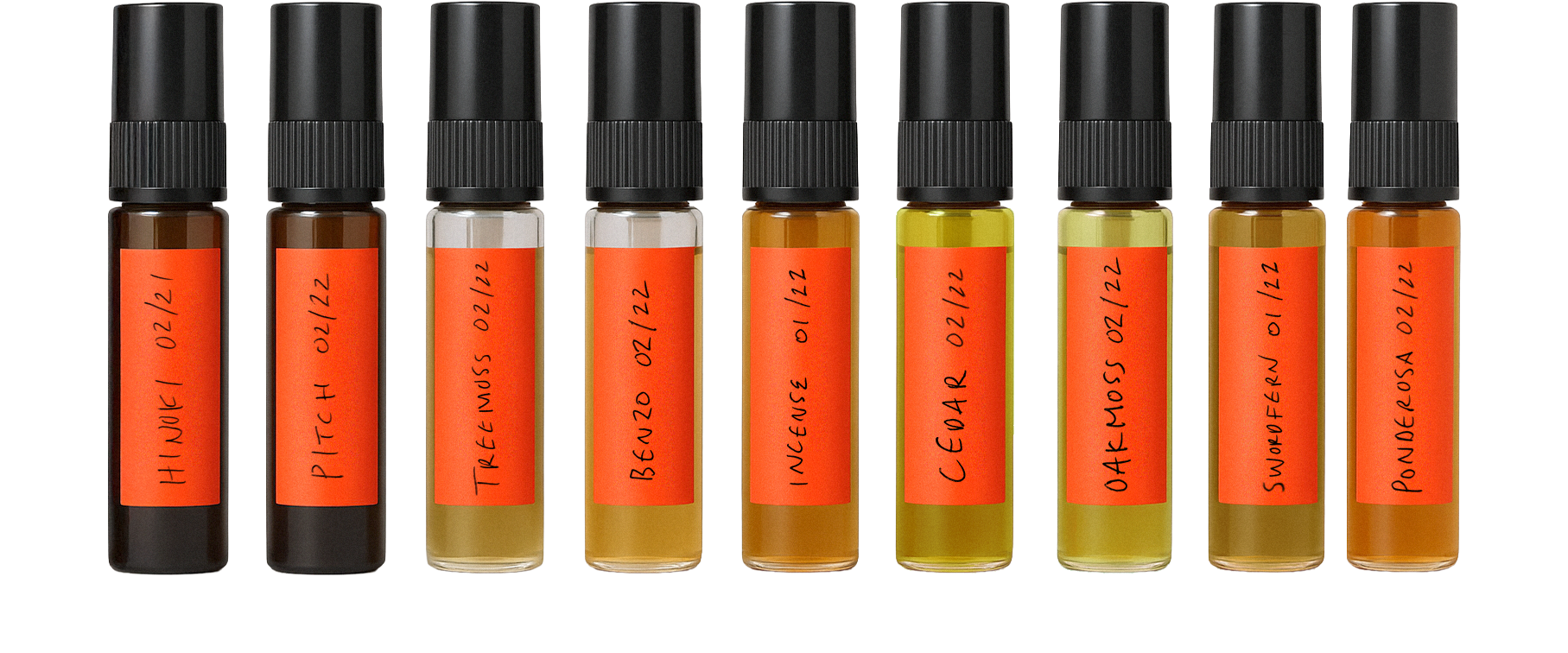 Some examples of where smellworlds has travelled:
Some examples of where smellworlds has travelled:
- “Scenting Relations: Exploring Smellworlds through Zine-Making” workshop, Society for Social Studies of Science (4S) Annual Meeting, Toronto, 2021
- “Smellworlds: Minor Sense” keynote and workshop at 3Ecologies Institute, Montréal, 2021
- “Performativity Beyond Bodies” workshop for GSWS 822 “Feminist Theory,” Simon Fraser University, 2022
- “Smellworlds” panel series, 4S Annual Meeting, Honolulu, 2023
- “Forage, Tincture, Age: DIY Perfumery as STS Method” presentation, 4S Honolulu, 2023
- “Smellworlds: Affect and the Colonial Sensorium” lecture and workshop for SA 887 “Ethnographic Sensibility," Simon Fraser University, 2023
- “Smellworlds,” sensory methods workshop at Promises/Impasses/Threats/Settlings, Society for the Study of Affect (SSA), Lancaster, Pennsylvania, 2024
- “Smellworlds: Vibes, Regionality, Synaesthetic Writing,” keynote at #PITS, SSA, Lancaster, Pennsylvania, 2024
View Photos
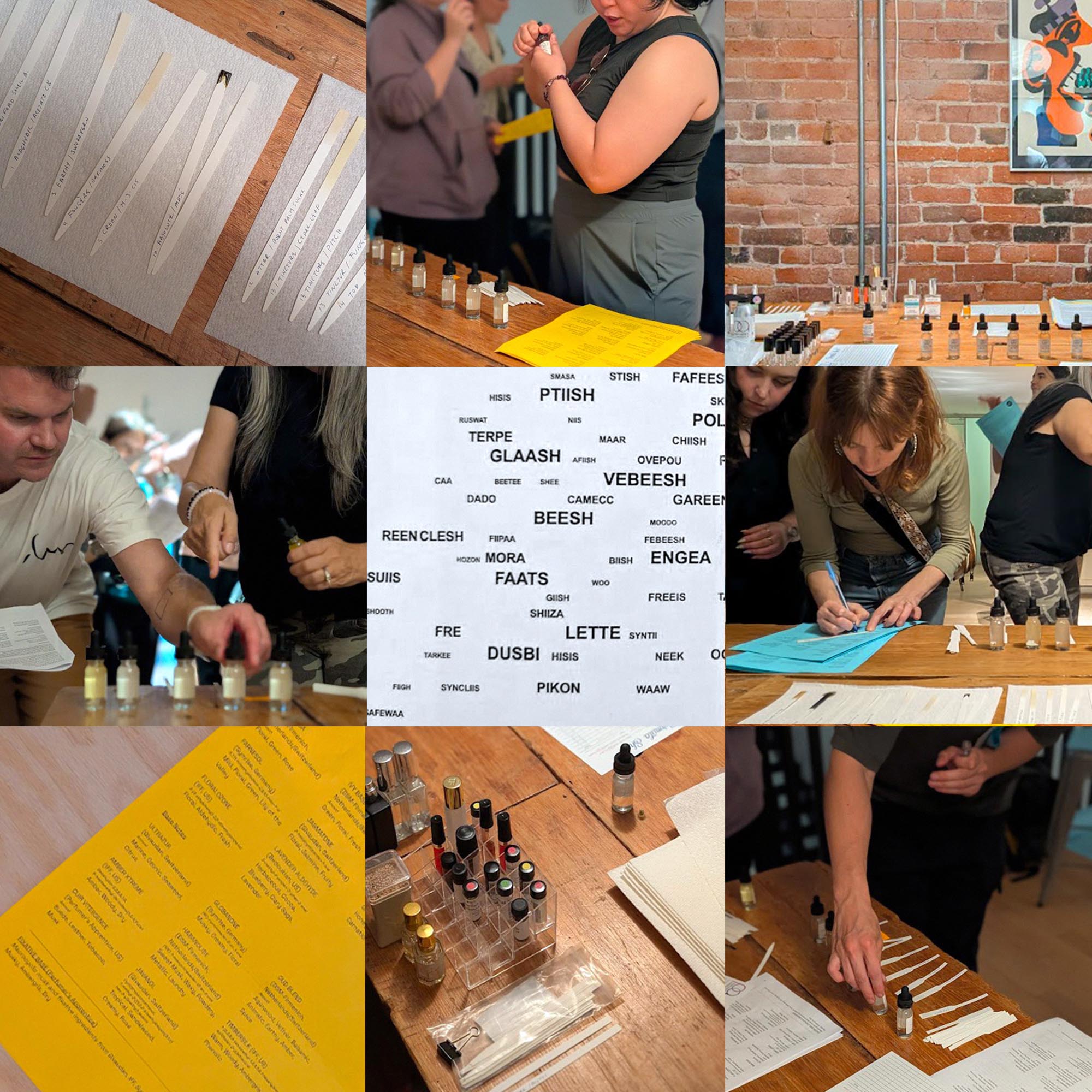
 Some examples of where smellworlds has travelled:
Some examples of where smellworlds has travelled:
- “Scenting Relations: Exploring Smellworlds through Zine-Making” workshop, Society for Social Studies of Science (4S) Annual Meeting, Toronto, 2021
- “Smellworlds: Minor Sense” keynote and workshop at 3Ecologies Institute, Montréal, 2021
- “Performativity Beyond Bodies” workshop for GSWS 822 “Feminist Theory,” Simon Fraser University, 2022
- “Smellworlds” panel series, 4S Annual Meeting, Honolulu, 2023
- “Forage, Tincture, Age: DIY Perfumery as STS Method” presentation, 4S Honolulu, 2023
- “Smellworlds: Affect and the Colonial Sensorium” lecture and workshop for SA 887 “Ethnographic Sensibility," Simon Fraser University, 2023
- “Smellworlds,” sensory methods workshop at Promises/Impasses/Threats/Settlings, Society for the Study of Affect (SSA), Lancaster, Pennsylvania, 2024
- “Smellworlds: Vibes, Regionality, Synaesthetic Writing,” keynote at #PITS, SSA, Lancaster, Pennsylvania, 2024
Playing with Clinical Jargon
Mathew Arthur & Annie ZengJargon shapes bodies, senses, and scenes of everyday and medical experiences of health. In this hands-on sensory methods and writing workshop, we experiment with jargon through medical ephemera and clinical objects. Working with a lively archive of pop cultural and medical education media, this workshop asks: how does jargon feel? What worlds does it give us access to? How is jargon improvised, hacked, recycled, and repurposed for other uses? Through a series of guided ethnographic exercises from the field of feminist science and technology studies, participants will become public investigators, developing their writing and research skills while making sense of the material, cultural, and felt dimensions of jargon.
FREE WORKSHOP
April 12, 2025
12 to 4pm
4926 Imperial Street
Apr


Playing with Clinical Jargon
Mathew Arthur & Annie ZengJargon shapes bodies, senses, and scenes of everyday and medical experiences of health. In this hands-on sensory methods and writing workshop, we experiment with jargon through medical ephemera and clinical objects. Working with a lively archive of pop cultural and medical education media, this workshop asks: how does jargon feel? What worlds does it give us access to? How is jargon improvised, hacked, recycled, and repurposed for other uses? Through a series of guided ethnographic exercises from the field of feminist science and technology studies, participants will become public investigators, developing their writing and research skills while making sense of the material, cultural, and felt dimensions of jargon.
FREE WORKSHOP
April 12, 2025
12 to 4pm
4926 Imperial Street
Apr
View Photos
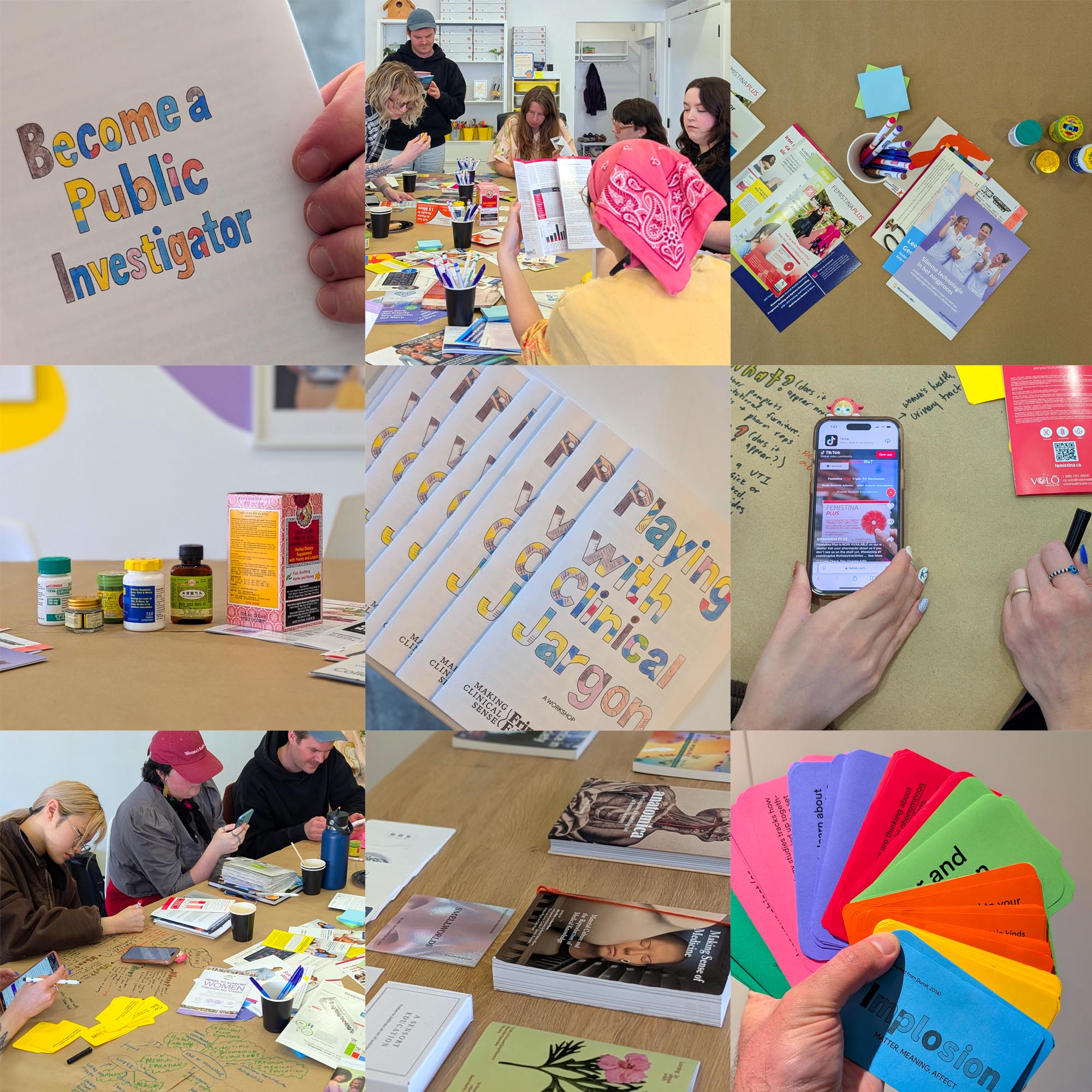
Our workshop gathered nonprofit workers, students, academics (from the fields of medical anthropology and gender studies), designers, and artists. We met for four hours on a sunny but cold April day at Curiko, a disability nonprofit. Through facilitated discussion, writing exercises, and an accompanying illustrated zine, participants encountered medical jargon as a material phenomenon tangled up with feelings.
Selected writings from this workshop appear in the book The Matter of Hospitals: An Alphabetical Investigation, edited by Anna Harris (Maastricht University Press, 2025).
Download the workshop materials:
Zine (PDF)Implosion Cards (PDF)
Selected writings from this workshop appear in the book The Matter of Hospitals: An Alphabetical Investigation, edited by Anna Harris (Maastricht University Press, 2025).
Download the workshop materials:
Zine (PDF)Implosion Cards (PDF)
Playing With Clinical Jargon is a collaboration between Maastricht-based medical education platform Fringe Editions, Doing STS, and Los Angeles-based public programmer Annie Zeng.
Playing With Clinical Jargon is a collaboration between Maastricht-based medical education platform Fringe Editions, Doing STS, and Los Angeles-based public programmer Annie Zeng.
2024 Events
Everyday Affective Ecologies
at Fifth and Pine
Vancouver’s ‘pop-up’ pollinator park at 5th and Pine gathers together overlapping processes, imaginaries, and agencies. Part of the in-progress Burrard Slopes park project, the site was built in 2016 and exemplifies urban planning initiatives to 'green the city' through community-based endeavors. A lack of consistent maintenance of the site over years has resulted in a proliferation of feisty plants and a weedy seedbank. Visit the park today and you will encounter small dramas of succession—hedge bindweed fells strands of aster on the eastern flank, blackberry brambles act out turf wars with prickly lettuces, and July tansy blooms paint the premises yellow. To address this situation, the city has attempted to organize a stewardship group to intervene in the chaotic flux of plant life and vitalize community presence in the neighborhood; this workshop invites you to take part in this stewardship effort.
Alongside weeding, pruning, and seed saving, we will play in the genre of a Bioblitz using iNaturalist to produce a record of floral and faunal community composition. In conjunction with these more ‘pragmatic’ activities, materials will be provided for aesthetic and artistic experimentation. Taking up the call of how we might ‘conspire with plants’ (Myers 2024), we ask participants to consider the force of categories like invasive, native, and feral. What might urban ecological formations characterized by ‘spontaneous forms of nature’ (Gandy 2023) and nondesign have to teach us about naturecultural politics in the present moment? And, what practices can we develop for attuning sensoriums to everyday ecologies?

LED BY CEALL QUINN
WITH REUBEN JENTINK
September 7th, 12 to 3pmPop-Up Park at 5th and Pine
1696 W 5th Avenue, Vancouver
If possible, please rapid test for Covid-19 before attending.
RESERVE A SPOT
Read Quinn's post about Bee Smellscapes on the 4S blog
View Photos

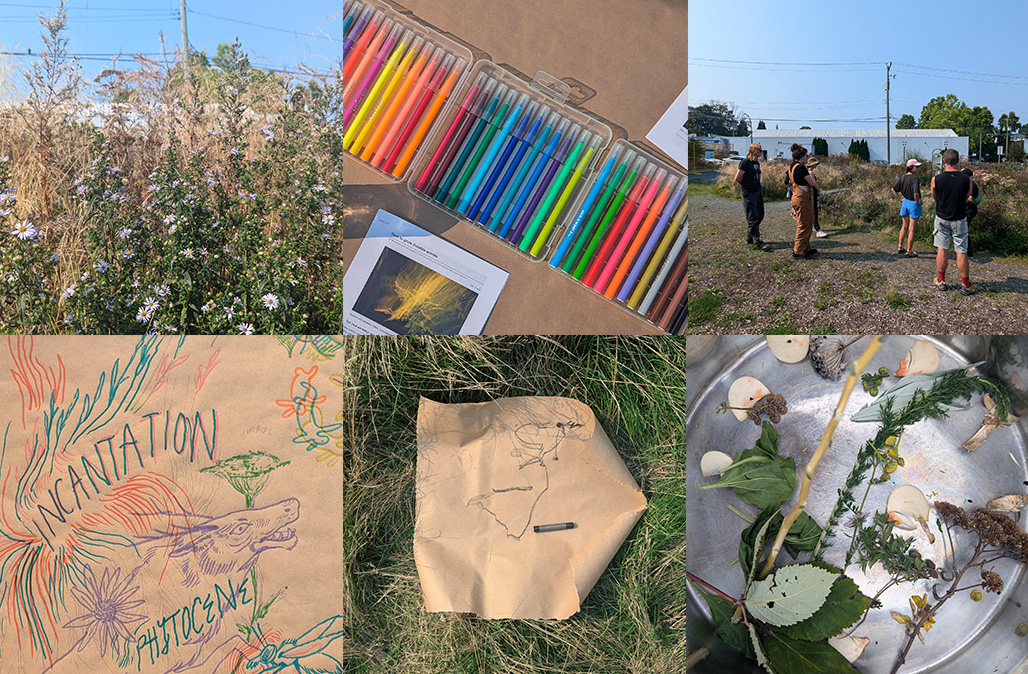


Patchy Anthropocene Reading Group
Ceall Quinn & Mathew ArthurJoin us every second Monday from 6 to 7:30pm at Studio Utopia to read aloud from the Field Guide to the Patchy Anthropocene and A Bestiary of the Anthropocene. After each week's reading, we will do a 30-minute writing exercise modelled after Katie Stewart and Lauren Berlant's Hundreds. Starts September 9, drop-ins welcome.
Every second Monday, 2024
Studio Utopia, 2414 Main Street
Ring doorbell or text 604 842-4412
(Wheelchair inaccessible)
hello@doingsts.com
Sept


Working with Herbs in TCM
Hayden OstromIf we are tangled up in more-than-human worlds, what counts as good health? How might we cultivate reciprocity in health practices? Join TCM student and herbalist Hayden Ostrom for a DIY herbalism workshop.
1–4pm, May 6th, 2023
Studio Utopia, 2414 Main Street
(Wheelchair inaccessible)
REGISTER HERE
Handout TCM Library
May
Climate Mourning, Slow and Soft
Sarah Law 婉雯, Simon Fraser UniversityThe climate crisis elicits grief. This workshop explores practices of care, mourning, and rest. Together, we'll engage in meditation, arts-based reflection, and writing exercises to explore how capitalism, white supremacy, and patriarchy replicate in the making of ecological crisis. We'll dream up visions of a just climate future and consider sense-imagination as a form of political protest, giving ourselves a chance to sit with grief in slowness and softness.
1–4pm, June 3rd, 2023
Room 1315, SFU Harbour Centre
REGISTER HERE
Zine (PDF)
Jun


Climate Mourning, Slow and Soft
Sarah Law 婉雯, Simon Fraser UniversityThe climate crisis elicits grief. This workshop explores practices of care, mourning, and rest. Together, we'll engage in meditation, arts-based reflection, and writing exercises to explore how capitalism, white supremacy, and patriarchy replicate in the making of ecological crisis. We'll dream up visions of a just climate future and consider sense-imagination as a form of political protest, giving ourselves a chance to sit with grief in slowness and softness.
1–4pm, June 3rd, 2023
Room 1315, SFU Harbour Centre
REGISTER HERE
Zine (PDF)
Jun


Perceptual Ferment
Erin Manning, Concordia"Vinegar mother is both catalyst and remains. Leaving a cloudiness in her wake, she is a reminder of the dephasing from sugar water to vinegar, and of the fact that what is produced is always less a substance in itself than a relational milieu."
Doing STS hosts a lecture and Q+A with Erin Manning, followed by a hands-on DIY vinegar fermentation workshop. Tools and materials provided.
1–4pm, June 18th, 2023
Studio Utopia, 2414 Main Street
REGISTER HERE
Jun
Pollinator Smellwalk
Ceall Quinn, University of British ColumbiaHow can we develop an ecological self in urban settings so often withdrawn from ecological imaginaries? What kinds of practices of attention can we deploy to cultivate nonhuman kinships? Where might curiosity take us in sensory encounter with Earth others? Approaching pollinator worlds, we'll ask these questions from the perspective of the amateur: "one who loves, lover." Participants are invited to dabble and pause in a space of unprofessional, non-instrumental bee noticing. With scraps of more-than-human ethnography, urban political ecology, and the science of bee and floral perception as guides, we'll gather for a bee smellwalk, tapping into our sensoriums, getting into place, and sharing observations. Bee-ing with pollinator partners in place is a portal for thinking naturecultural entanglements in the city.
1–4pm, August 27th, 2023
Pollinator Park, 5th and Pine
REGISTER HERE
Aug


Pollinator Smellwalk
Ceall Quinn, University of British ColumbiaHow can we develop an ecological self in urban settings so often withdrawn from ecological imaginaries? What kinds of practices of attention can we deploy to cultivate nonhuman kinships? Where might curiosity take us in sensory encounter with Earth others? Approaching pollinator worlds, we'll ask these questions from the perspective of the amateur: "one who loves, lover." Participants are invited to dabble and pause in a space of unprofessional, non-instrumental bee noticing. With scraps of more-than-human ethnography, urban political ecology, and the science of bee and floral perception as guides, we'll gather for a bee smellwalk, tapping into our sensoriums, getting into place, and sharing observations. Bee-ing with pollinator partners in place is a portal for thinking naturecultural entanglements in the city.
1–4pm, August 27th, 2023
Pollinator Park, 5th and Pine
REGISTER HERE
Aug


Walking and Writing Viaducts
Reuben JentinkAre the Georgia viaducts gardens? Not really, but the City once seemed set on spinning them as a future oasis. In 2016 the Park Board selected James Corner Field Operations, the landscape architect of New York's High Line, to reimagine the 21-acre site. While the High Line's abandoned infrastructure was reworked into a park, here "unworkable" structures will be demolished. What are we being asked to imagine in collective dreams of this downtown park? Kumeyaay poet Tommy Pico's Feed takes place on the High Line: a walking poem cataloguing Indigenous disposession, what grows in the park, and heartbreak following a breakup—with a playlist ranging from Beyonce to The Knife. Like Pico, we'll walk the viaducts, writing our way through their histories, nonhuman inhabitants, and possible futures.
September, 2023
Location TBD
Sept
Doing STS is (a lab) composed of four labs
WriteLab
WriteLab was a weekly meetup. Now, it takes shape as ad hoc workshops. WriteLab looks to compositional methods across STS and affect studies.Otherwise Tastes
Otherwise Tastes is a series of critical herbalism and fermentation workshops. It explores the relationship between taste, microbial worlds, and politics and cultivates an appetite for doing theory from the kitchen table.Smellworlds
Smellworlds is an ongoing project to develop sensory methods through smellwalks and DIY perfumery.Insurgent Residues
Insurgent Residues is a collaborative critical digital humanities project that aims to build a living STS encyclopedia of extractivism in “British Columbia.”Experimental Study as Care
All four labs entail daily acts of care: self-care as integral to writing practice, tending jars of fermenting mash as their microbial flora care for our gut health, gardening plants whose roots or petals both resource our DIY perfumery and lift our moods with scent, or caring for the toxic and compromised landscapes we inhabit.Academic productivity risks these relations. Likewise, being sick or sad, tediously skimming off bad yeast, spending hours lost in a tableful of perfumery ingredients disrupts the tempo of scholarly work.
In this way, rubrics of care help to track interests, attachments, politics, and ways of working. They offer a humble ethical grounding for doing STS and affect work beyond institutional contexts that demand forms of legibility despite the messiness of practice.
Lab 1
Tangerine
What can writing do? WriteLab is a weekly drop-in theory writing group modelled loosely after Lauren Berlant and Katie Stewart's "hundreds" and Joe Dumit's "implosion." Looking to compositional methods across STS and affect studies, we'll explore how everyday objects, happenings, and practices texture theory and how theory textures life. We'll experiment with writing alongside what's taking shape or being assembled, staying stuck or fading into the background, to presence atmospheres of indeterminacy and relationships that matter.
Mondays 7-9pm PST
April–November, 2023
Studio Utopia
2414 Main Street
hello@doingsts.com to join
(Wheelchair inaccessible)
WriteLab Library
Lab 2
Smellworlds are everywhere. Intimate or atmospheric, near-imperceptible or assaulting. They seep and linger, harnessing bodies into movement. Smell is feral and highly regulated: tangled up in appetites, industries, domesticities, toxicities, and public hygienes. Chlorine. CK One. Electrical fire. Garbage. Leather. Locker room. Mr. Clean. Old books. Pencil shavings. Smog. Smudge. Wet dog. Yeast. The intiating proposition of Smellworlds is compositional: that scent or its absence assembles, pulling things into consistency.
Critical engagements with smell are many and few. The literature homes in on cultural histories, neurophysiology, sensory mapping or smellwalk methods, and notions of toxicity and risk. Instead, Smellworlds proposes DIY perfumery as a way into the worldly atmospherics of smell—how smell connects and moves. Bodily, emotionally, wafting here and there. Through a series of public lectures and workshops, we'll explore how the colonial project is a toning of sense: how anthropocentrism, whiteness, and settler nationalism come with cultivated habits of smell and predictable smellscapes.

Multispecies kinships from the kitchen table
Multispecies work is often either abstract or exotic in its empirics. It can require travel for fieldwork, special lab equipment, or access to gatekept institutional relationships. Following species around depends on access to big grants, stable housing, and ample time off work. Instead, Otherwise Tastes cultivates appetites for theory closer to home: from the kitchen table.
Through a series of public workshops and a keynote lecture with Erin Manning, we'll work through vinegar-making practices like alcohol and acetobacter fermentation and engage microbial humanities and feminist STS work on fermentation to explore the relationship between taste, unseen bacterial worlds, and political formations. Engaging ordinary tactics of witness like colour, temperature, visible mould or yeast, carbonation, or scent, we'll reckon with the tension between technoscientific settler sovereignties and Indigenous and other approaches to multispecies kin.
Through a series of public workshops and a keynote lecture with Erin Manning, we'll work through vinegar-making practices like alcohol and acetobacter fermentation and engage microbial humanities and feminist STS work on fermentation to explore the relationship between taste, unseen bacterial worlds, and political formations. Engaging ordinary tactics of witness like colour, temperature, visible mould or yeast, carbonation, or scent, we'll reckon with the tension between technoscientific settler sovereignties and Indigenous and other approaches to multispecies kin.

Beginnings
Hum 101 Public Program
Vancouver Public Library, Strathcona BranchDoing STS began as a public program (led by Mathew Arthur) with Hum 101 at the University of British Columbia, a free school for residents of Vancouver's Downtown Eastside and Downtown South. From 2017 to 2021, this weekly feminist technoscience salon at Carnegie Community Centre and the Vancouver Public Library's nə́c̓aʔmat ct Strathcona Branch hosted a mix of multigenerational and neurodiverse attendees, including ESL learners, refugees, residential school survivors, activists, and artists.
- 2021, "Haraway Talks: Reading and Figuring Worlds" held online
- 2020, "Speculative Matters: Making Worlds with Zines" at Vancouver Public Library, Strathcona
- 2019, "Doing Feminist, Queer, and Indigenous Technoscience" at Vancouver Public Library, Strathcona
- 2018, "Doing STS" at Vancouver Public Library, Strathcona
- 2017, "Doing Science and Theology" at Carnegie Community Centre
(Photo: Dialogue)
